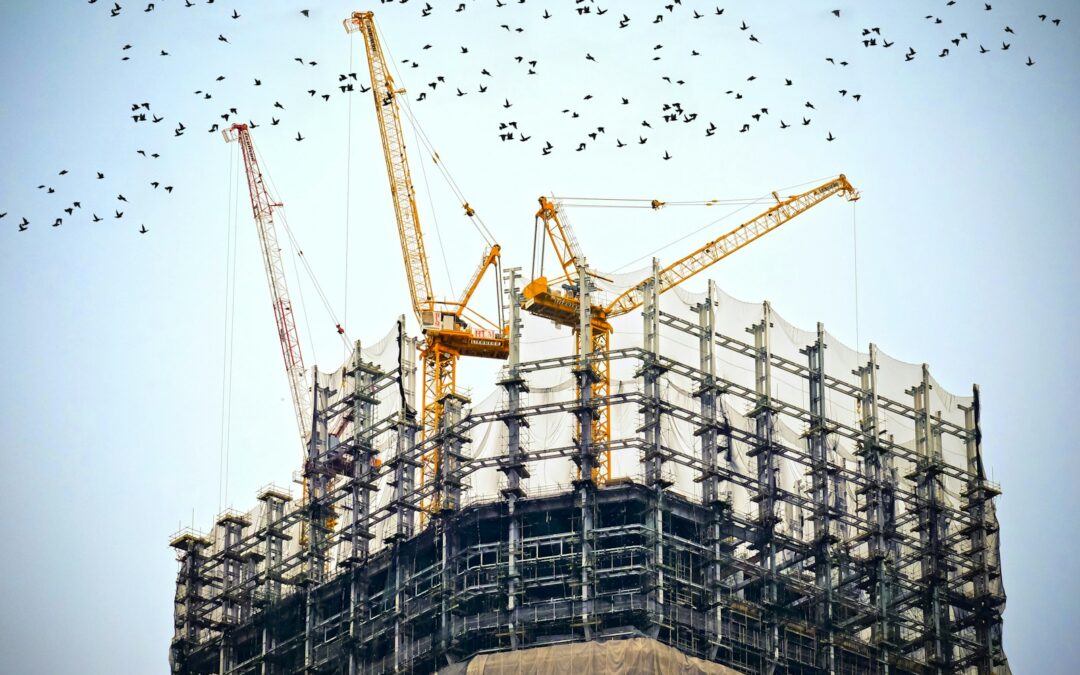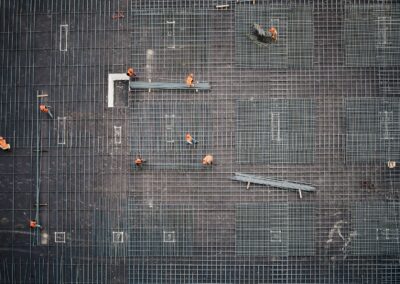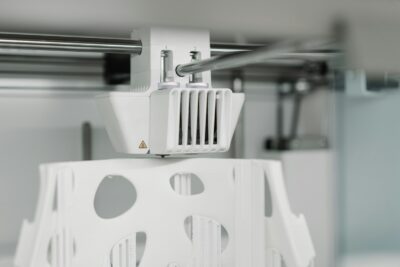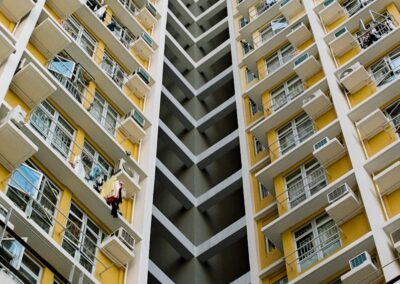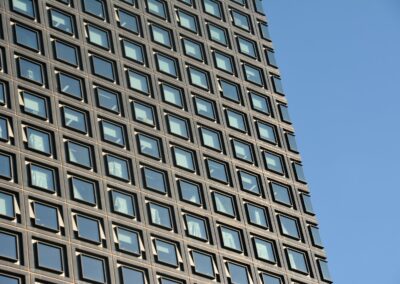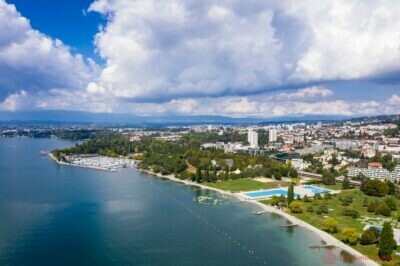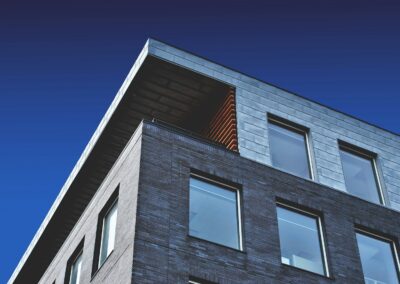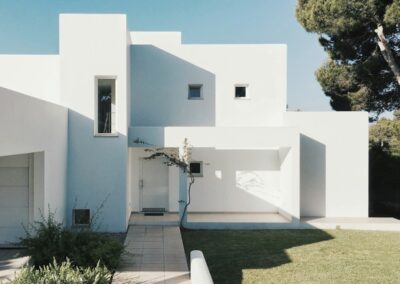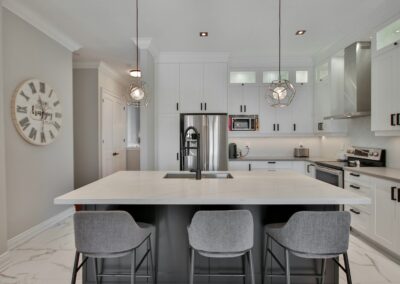Enhancing Quality and Durability in Modular Homes
The Rise of Modular Construction
Advancements in modular construction technology have revolutionized the building industry, offering significant improvements in the quality and durability of modular homes. In regions like Saudi Arabia and the UAE, where rapid urbanization demands efficient and sustainable building solutions, modular construction has emerged as a viable and attractive option. Modular construction involves prefabricating building sections off-site in controlled environments and then assembling them on-site, resulting in reduced construction times and enhanced quality control.
In Saudi Arabia, the government’s Vision 2030 initiative aims to diversify the economy and improve infrastructure. Modular construction aligns with these goals by enabling faster and more efficient building processes. Projects like the King Abdullah Economic City have embraced modular construction to meet the growing demand for residential and commercial spaces. The use of high-quality materials and precision engineering in modular construction ensures that the final structures are robust and durable, capable of withstanding the harsh climatic conditions of the region.
Dubai is also at the forefront of modular construction innovation. The city has adopted cutting-edge technologies to create sustainable and resilient buildings. The Dubai Future Foundation’s Museum of the Future, constructed using modular techniques, exemplifies the potential of this approach. The precision and quality control inherent in modular construction result in structures that not only meet but often exceed traditional building standards. This shift towards modular construction is a testament to Dubai’s commitment to adopting modern technologies to drive urban development.
Innovative Technologies in Modular Construction
The integration of advanced technologies has further enhanced the capabilities of modular construction. Artificial intelligence (AI) and generative design are playing crucial roles in optimizing the design and manufacturing processes. AI algorithms analyze vast amounts of data to improve design efficiency, identify potential issues, and ensure that every module meets stringent quality standards. Generative design, on the other hand, allows architects and engineers to explore numerous design permutations rapidly, leading to innovative and optimized building solutions.
In the UAE, companies like ModulusTech are leveraging AI and generative design to create affordable and sustainable housing solutions. These technologies enable precise customization of modular units, ensuring that they meet the specific needs of residents while maintaining high standards of quality and durability. The use of AI in predictive maintenance also enhances the longevity of modular homes, as potential issues can be identified and addressed before they become significant problems.
Blockchain technology is another game-changer in the modular construction industry. By providing a transparent and immutable record of the entire construction process, blockchain ensures accountability and traceability. This is particularly important in regions like Saudi Arabia and the UAE, where large-scale construction projects require rigorous quality control and compliance with regulatory standards. Blockchain technology facilitates real-time tracking of materials and components, reducing the risk of defects and ensuring that every module adheres to the highest quality standards.
Sustainability and Efficiency in Modular Construction
Sustainability is a key consideration in modern construction, and modular technology excels in this aspect. The controlled environment of off-site manufacturing reduces waste and minimizes the environmental impact of construction activities. Additionally, modular construction allows for the integration of sustainable materials and energy-efficient systems, contributing to greener and more eco-friendly buildings.
In Riyadh, the use of modular construction in the Al Widyan project highlights the potential for sustainable urban development. The project incorporates green building practices, including the use of recycled materials and renewable energy sources. The efficiency of modular construction also means that projects can be completed more quickly, reducing the disruption to local communities and minimizing the carbon footprint of construction activities.
Dubai’s commitment to sustainability is evident in its adoption of modular construction for various projects. The Sustainable City, for example, utilizes modular construction to create energy-efficient homes equipped with solar panels and smart home technologies. These sustainable features not only enhance the quality of life for residents but also promote environmental stewardship. The use of modular construction in such projects demonstrates how advanced building techniques can contribute to the broader goals of sustainability and urban resilience.
The Future of Modular Construction
Driving Innovation and Business Success
The advancements in modular construction technology are driving innovation and creating new business opportunities in the construction industry. Entrepreneurs and companies that specialize in modular construction are well-positioned to capitalize on the growing demand for efficient and sustainable building solutions. In regions like Saudi Arabia and the UAE, where large-scale infrastructure projects are underway, the potential for modular construction to revolutionize the industry is immense.
Businesses that embrace modular construction can differentiate themselves by offering high-quality, durable, and sustainable building solutions. The ability to deliver projects more quickly and efficiently also provides a competitive advantage. For instance, real estate developers in Dubai are increasingly adopting modular construction to meet the demand for residential and commercial spaces. This trend not only benefits the environment but also enhances the marketability and profitability of properties.
Furthermore, the integration of advanced technologies such as AI, blockchain, and IoT into modular construction creates additional business opportunities. These technologies enable smart building systems that optimize energy use, enhance security, and improve the overall living experience for residents. By developing and implementing these technologies, businesses can contribute to the growth of the modular construction industry and drive innovation in the built environment.
Leadership and Management Skills in Modular Construction
Successful implementation of modular construction projects requires strong leadership and management skills. Project managers must be adept at coordinating complex logistics, managing supply chains, and ensuring that all stakeholders are aligned with the project’s goals. In regions like Saudi Arabia and the UAE, where large-scale projects involve multiple contractors and suppliers, effective project management is critical to the success of modular construction initiatives.
Leadership skills are also essential in fostering a culture of innovation and continuous improvement. Companies that prioritize employee training and development can ensure that their teams are equipped with the knowledge and skills needed to excel in modular construction. This includes staying up-to-date with the latest technological advancements and best practices in the industry. By cultivating a skilled and motivated workforce, businesses can drive the adoption of modular construction and contribute to the industry’s growth.
In Dubai, initiatives like the Dubai Future Accelerators program support the development of leadership and management skills in the construction industry. The program connects innovators and entrepreneurs with government entities and private sector companies to collaborate on cutting-edge projects. Such initiatives play a crucial role in promoting the adoption of modular construction and other advanced building technologies, ensuring that Dubai remains at the forefront of urban development.
Conclusion: The Path Forward for Modular Construction
The advancements in modular construction technology are transforming the building industry, offering significant improvements in the quality, durability, and sustainability of modular homes. In regions like Saudi Arabia and the UAE, the adoption of modular construction is driving innovation, creating new business opportunities, and contributing to sustainable urban development. The integration of advanced technologies such as AI, blockchain, and IoT further enhances the capabilities of modular construction, making it a viable and attractive option for modern building projects.
As the demand for efficient and sustainable building solutions continues to grow, the potential for modular construction to shape the future of the industry is immense. By embracing modular construction, businesses can differentiate themselves in the competitive real estate market, drive innovation, and contribute to the broader goals of sustainability and urban resilience. The success of modular construction depends on continued investment in technology, strong leadership, and effective project management, ensuring that the industry can meet the challenges and opportunities of the future.
#ModularConstruction #SustainableBuilding #ConstructionInnovation #ModularHomes #SaudiArabia #UAE #Riyadh #Dubai #ArtificialIntelligence #Blockchain #GenerativeAI #ModernTechnology #BusinessSuccess #LeadershipSkills #ManagementSkills #ProjectManagement

